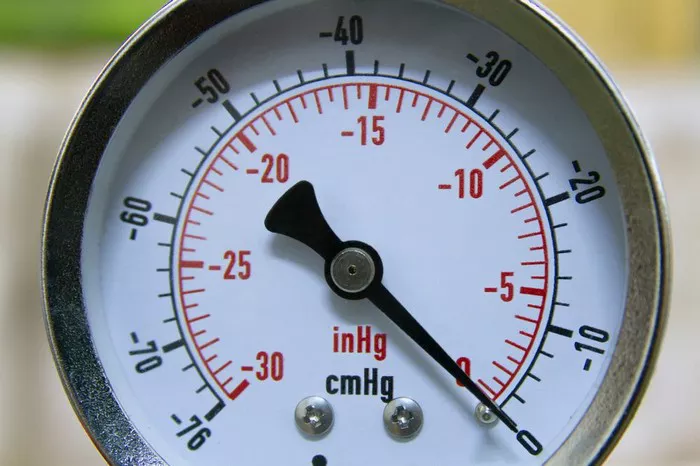A pressure gauge is an essential instrument widely used in water systems to monitor and measure the pressure of water within pipes, tanks, pumps, and other components. It helps ensure that the water system operates safely and efficiently by providing real-time feedback on pressure levels. This feedback is crucial for preventing damage to equipment, avoiding leaks, and maintaining consistent water flow.
In simple terms, a pressure gauge converts the physical force exerted by water on its sensing element into a readable measurement, typically expressed in pounds per square inch (psi), bar, or pascals (Pa). By continuously monitoring the pressure, operators can make informed decisions, optimize system performance, and detect potential issues early on.
How Pressure Gauges Work in Water Systems
The operation of a pressure gauge relies on the interaction between the water pressure and a mechanical or electronic sensing element inside the device. Common mechanical pressure gauges, such as the Bourdon tube pressure gauge, use a curved tube that straightens or bends more depending on the pressure exerted by the water. This motion is translated into a dial reading through mechanical linkages.
Other types, such as digital pressure gauges, use sensors that convert pressure into electrical signals for more precise digital readouts and advanced monitoring capabilities. These modern instruments often feature data logging, alarms, and remote monitoring options, which can be very useful in large or complex water systems.
Types of Pressure Gauges Used in Water Systems
Water systems employ various pressure gauge types depending on the application, pressure range, and environmental conditions. Some of the common types include:
- Bourdon Tube Pressure Gauges: Ideal for general water system applications due to their durability and simplicity.
- Diaphragm and Capsule Pressure Gauges: Suitable for low-pressure water systems and where high sensitivity is required.
- Digital Pressure Gauges: Provide higher accuracy and are useful for systems requiring precise control.
- Compound Pressure Gauges: Measure both vacuum and positive pressure, helpful in complex water systems that may experience suction or pressure fluctuations.
Importance of Pressure Gauges in Maintaining Water System Integrity
Pressure gauges play a pivotal role in maintaining water system integrity. They help in:
- Preventing Overpressure Conditions: Excessive pressure can damage pipes, joints, valves, and other components, potentially causing leaks or catastrophic failure.
- Ensuring Optimal Pump Operation: Pumps operate most efficiently within a specific pressure range. Gauges provide feedback to maintain this range, saving energy and extending pump life.
- Detecting Leaks and Blockages: Sudden drops or spikes in pressure readings often indicate leaks, clogs, or malfunctioning valves that require immediate attention.
- Compliance and Safety: Many regulations mandate regular pressure monitoring to ensure water system safety and reliability.
Installation and Maintenance of Pressure Gauges in Water Systems
Proper installation and routine maintenance of pressure gauges are critical to ensure accurate measurements and long-term reliability. Some key considerations include:
- Correct Placement: Gauges should be installed at points representative of system pressure, such as near pumps, pressure tanks, or at critical control valves.
- Isolation Valves: Installing valves allows for gauge removal or replacement without shutting down the entire system.
- Regular Calibration: Pressure gauges must be calibrated periodically to maintain measurement accuracy, especially in high-demand systems.
- Protection Against Vibration and Pulsation: Using dampeners or glycerin-filled gauges can minimize measurement fluctuations caused by system vibrations.
Common Challenges and Solutions When Using Pressure Gauges in Water Systems
Despite their simplicity, pressure gauges can face several challenges that impact their performance, including:
- Corrosion: Water systems, especially those with aggressive chemicals or minerals, may corrode gauge components. Using corrosion-resistant materials or protective coatings can mitigate this issue.
- Freezing: In cold climates, water trapped inside gauges can freeze, damaging the instrument. Installing gauges in heated enclosures or using antifreeze solutions helps prevent this.
- Pressure Spikes: Sudden pressure surges can damage delicate gauges. Pressure snubbers or relief valves can protect gauges from these spikes.
- Reading Errors: Mechanical gauges may suffer from wear and tear, causing inaccurate readings. Digital gauges with self-diagnostics offer better long-term reliability.
Conclusion
Pressure gauges are indispensable tools in water systems, providing crucial insights into system health and performance. Whether a simple Bourdon tube gauge or an advanced digital pressure gauge, these instruments ensure the safe and efficient operation of water distribution and treatment facilities. By choosing the appropriate gauge type, ensuring proper installation, and maintaining regular calibration, operators can maximize the lifespan and reliability of their water systems. Continuous advancements in instrumentation promise to further enhance how pressure is monitored and controlled, driving better outcomes in water management globally.
FAQs
What is the main purpose of a pressure gauge in a water system?
The primary purpose of a pressure gauge is to measure and display the pressure of water within the system, helping to ensure safe and efficient operation by preventing overpressure or underpressure conditions.
How often should pressure gauges be calibrated in water systems?
Calibration frequency depends on the application and environment but typically ranges from every 6 months to annually. Critical systems may require more frequent checks to ensure accuracy.
Can digital pressure gauges replace mechanical gauges in water systems?
Yes, digital pressure gauges offer higher accuracy, remote monitoring capabilities, and advanced features. However, mechanical gauges remain popular for their simplicity, robustness, and lower cost in many applications.
What types of pressure gauges are best for corrosive water systems?
Gauges made from corrosion-resistant materials like stainless steel or those with protective coatings are best suited for corrosive environments. Additionally, diaphragm or capsule pressure gauges can be more durable in harsh conditions.

